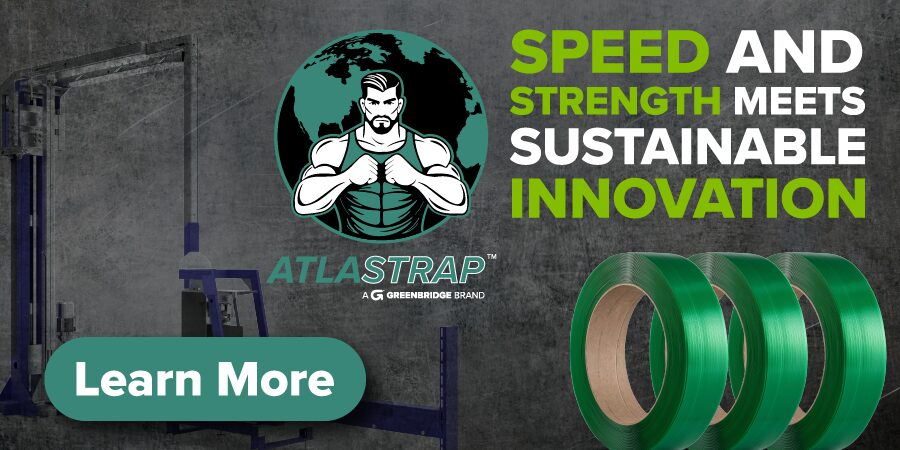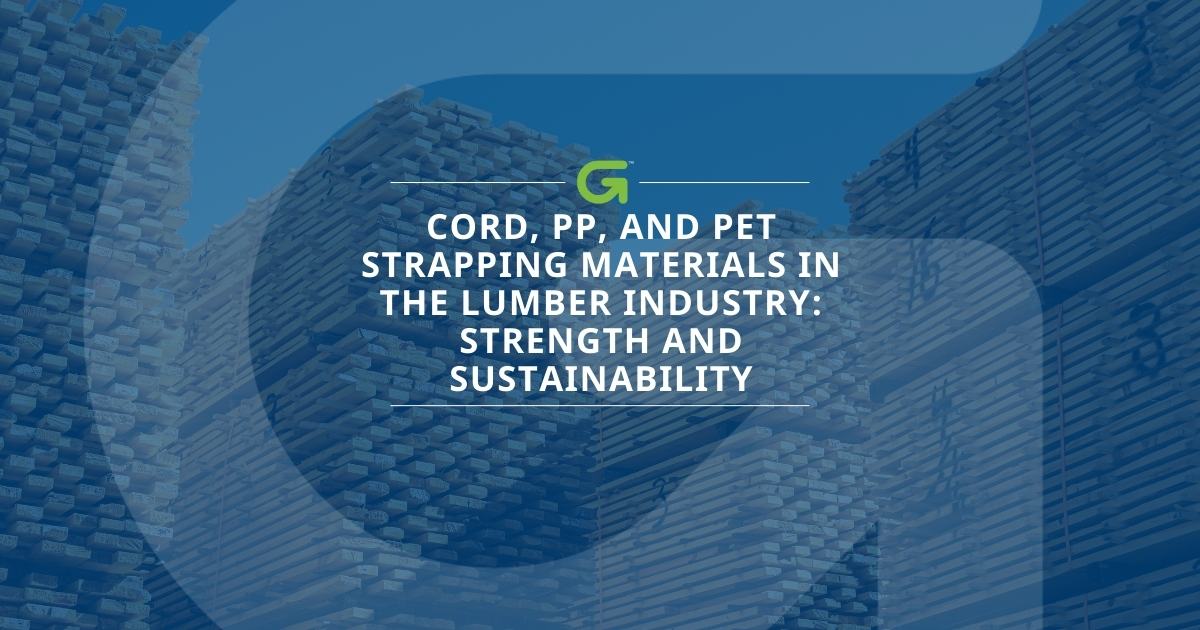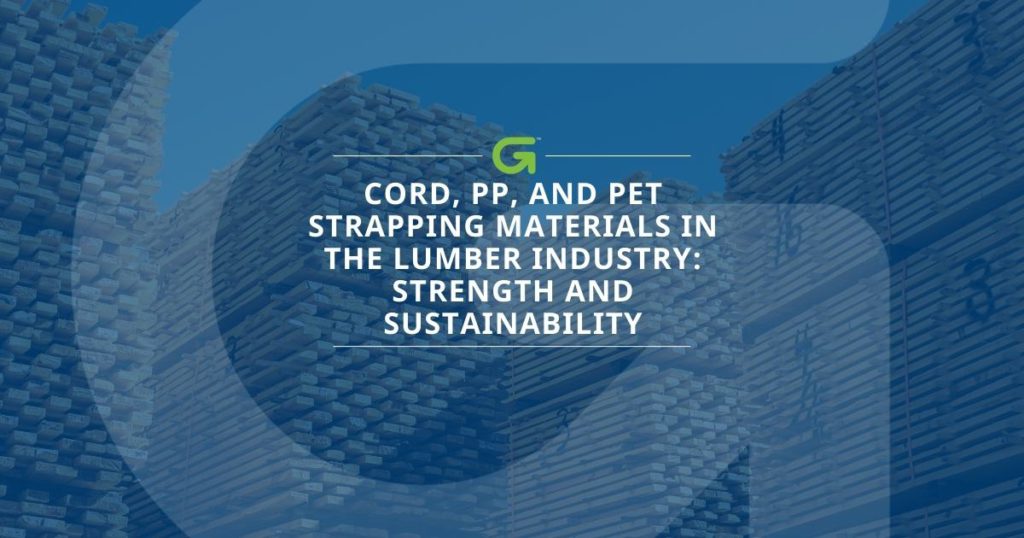

Cord, PP, and PET Strapping Materials in the Lumber Industry: Strength and Sustainability
The lumber industry relies heavily on secure and durable strapping materials to bundle and transport wood products effectively. Among the various options available, cord, PP (polypropylene), and PET strapping materials have emerged as popular choices. In this blog, we will delve into the characteristics, benefits, and applications of these strapping materials in the context of the lumber industry.

Cord Strapping:
Cord strapping, also known as corded strapping or textile strapping, is a robust and versatile option for the lumber industry. It consists of woven polyester fibers, offering excellent tensile strength and shock resistance. Here’s why cord strapping is favored in the lumber sector:
- Strength and Durability: Cord strapping is known for its high tensile strength, making it suitable for securing heavy loads of lumber. It can withstand the rigors of transportation and storage, preventing damage to wood products.
- Shock Absorption: Lumber often experiences jolts and vibrations during transportation. Cord strapping’s shock-absorbing properties help reduce the risk of damage due to impact, ensuring that lumber arrives at its destination in good condition.
- Versatility: Cord strapping can be used for a wide range of lumber products, including dimensional lumber, plywood, and engineered wood products. Its flexibility and ease of use make it a valuable choice for various applications.
- Sustainability: Cord strapping is an eco-friendly option as it is made from polyester fibers that are recyclable and reusable. This aligns with the lumber industry’s growing focus on sustainability and responsible packaging practices.
PP (Polypropylene) Strapping:
Polypropylene strapping is another popular choice in the lumber industry due to its affordability and reliability. It is made from thermoplastic polymer and offers several advantages:
- Cost-Effective: PP strapping is cost-effective, making it a practical choice for lumber businesses that require large quantities of strapping materials. It offers a balance between strength and affordability.
- Lightweight: Polypropylene strapping is lightweight, making it easy to handle during packaging and transport. It contributes to reduced shipping costs while ensuring adequate bundling.
- Resistance to Moisture: Lumber can be exposed to moisture during transport and storage. PP strapping is resistant to moisture, preventing deterioration and maintaining bundle integrity.
- Recyclability: PP strapping is recyclable, making it a sustainable choice for environmentally conscious lumber companies. Recycling PP strapping helps reduce waste and environmental impact.
PET (Polyethylene Terephthalate) Strapping:
PET strapping is gaining traction in the lumber industry due to its exceptional strength and environmental benefits. It is made from recycled PET plastic bottles and offers unique advantages:
- High Tensile Strength: PET strapping boasts remarkable tensile strength, making it ideal for securing heavy and bulky lumber bundles. It provides superior load-bearing capacity.
- UV Resistance: Lumber is often stored outdoors, exposing it to UV rays. PET strapping is UV-resistant, ensuring that it maintains its strength and integrity even when exposed to sunlight.
- Eco-Friendly: PET strapping is made from recycled plastic bottles, making it a sustainable choice. Additionally, it is fully recyclable, contributing to the circular economy and reducing plastic waste.
- Safety: PET strapping’s smooth edges and excellent elongation properties reduce the risk of injury during strapping and unstrapping processes.
Cord, PP, and PET strapping materials play vital roles in the lumber industry, offering a range of benefits to meet different needs and preferences. Cord strapping excels in strength and shock absorption, PP strapping is cost-effective and moisture-resistant, while PET strapping combines exceptional strength with environmental sustainability.
Choosing the right strapping material depends on the specific requirements of lumber businesses, including load capacity, budget, and sustainability goals. By selecting the most suitable strapping material, lumber companies can ensure the secure and efficient bundling of their products, contributing to the integrity of their shipments and the sustainability of their operations.
To purchase tools and accessories, visit our online store, and for more information on our full catalog of securement products contact us to connect with your Regional Sales Manager.

